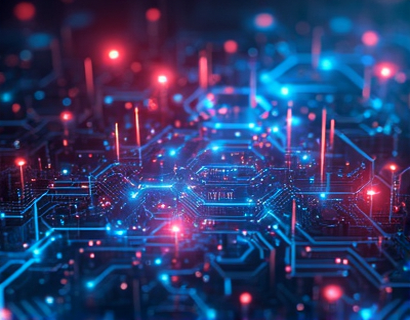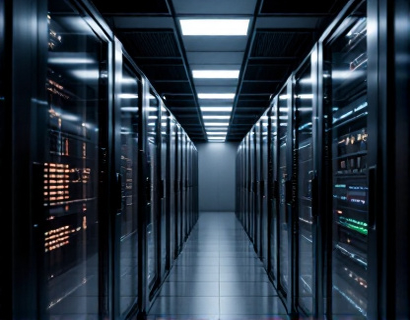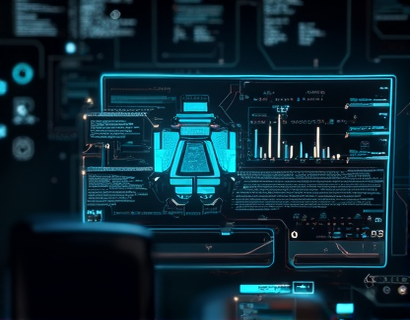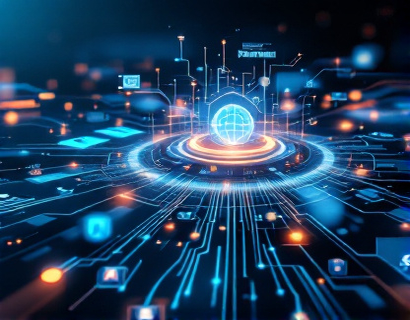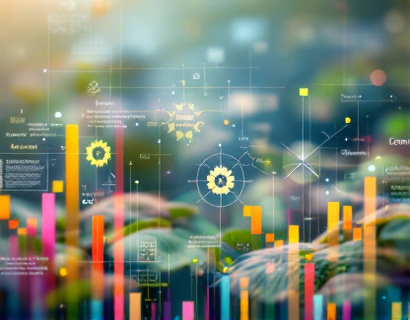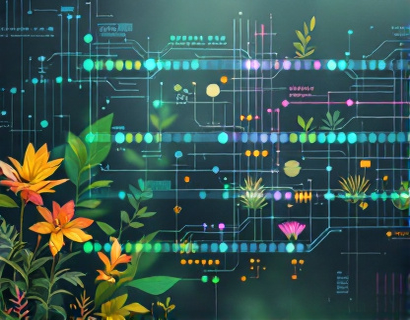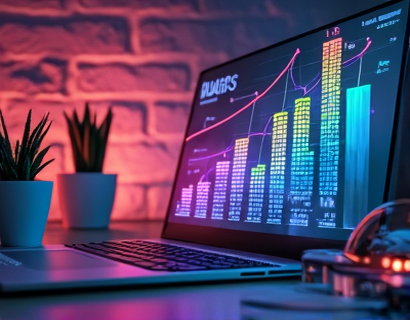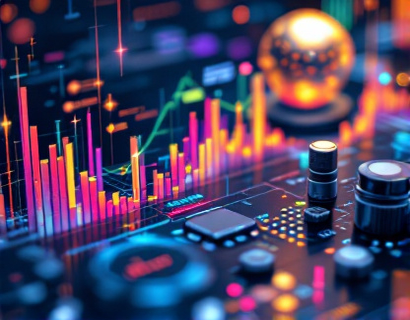Unlocking Next-Gen Productivity: The Synergy of AI and Crypto
The intersection of artificial intelligence and cryptocurrency is giving rise to a new era of digital innovation, one that promises to revolutionize how we approach productivity and efficiency in our daily lives. This fusion of technologies is not just a novel concept but a practical solution that can significantly enhance the way we interact with digital tools and services. For tech-savvy professionals and early adopters, understanding this synergy is crucial to staying ahead in a rapidly evolving digital landscape.
Understanding AI and Crypto: The Basics
Artificial intelligence, or AI, refers to the simulation of human intelligence processes by machines, particularly computer systems. These processes include learning, reasoning, and self-correction. AI technologies encompass a wide range of applications, from simple data analysis to complex decision-making systems.
Cryptocurrency, on the other hand, is a digital or virtual currency that uses cryptography for security. It operates on a decentralized network, typically a blockchain, which ensures transparency and immutability. Bitcoin, the first and most well-known cryptocurrency, paved the way for thousands of alternative coins and tokens, each with unique features and use cases.
The combination of AI and cryptocurrency is creating a powerful synergy. AI can enhance the functionality and security of blockchain-based systems, while blockchain can provide a robust and transparent framework for AI applications. This integration is leading to the development of innovative digital solutions that are redefining productivity and efficiency.
Enhancing Security and Transparency
One of the most significant benefits of combining AI and cryptocurrency is the enhancement of security and transparency. Blockchain technology inherently provides a secure and tamper-proof ledger, which is ideal for storing and processing sensitive data. AI can further bolster this security by detecting and mitigating potential threats in real-time.
For instance, AI algorithms can monitor blockchain transactions for unusual patterns that might indicate fraudulent activity. Machine learning models can be trained to recognize normal behavior and flag deviations, ensuring that the system remains secure. This proactive approach to security is particularly valuable in industries where data integrity and privacy are paramount, such as finance, healthcare, and supply chain management.
Optimizing Smart Contracts
Smart contracts are self-executing contracts with the terms of the agreement directly written into code. They run on blockchain networks and automatically enforce and execute the terms of the contract when predefined conditions are met. AI can optimize smart contracts by improving their efficiency and reliability.
AI can analyze vast amounts of data to identify potential vulnerabilities in smart contract code, helping developers to write more secure and robust contracts. Additionally, AI can predict and adapt to changing conditions, ensuring that smart contracts operate smoothly even in dynamic environments. This optimization not only reduces the risk of errors but also enhances the overall user experience.
Streamlining Decentralized Applications
Decentralized applications (dApps) are a natural fit for the AI-crypto ecosystem. These applications leverage blockchain technology to provide decentralized and censorship-resistant services. AI can significantly enhance the functionality of dApps by enabling more intelligent and responsive user interfaces.
For example, AI-powered chatbots can be integrated into dApps to provide users with real-time assistance and support. These chatbots can understand natural language queries, offer personalized recommendations, and even handle complex tasks autonomously. This level of interactivity not only improves user engagement but also increases the efficiency of the application.
Moreover, AI can optimize the performance of dApps by dynamically adjusting resources based on user demand. Machine learning algorithms can predict traffic patterns and allocate computational resources accordingly, ensuring that the application remains responsive and fast, even during peak usage times.
Enhancing Data Analysis and Insights
Data analysis is a critical component of modern productivity, and the combination of AI and cryptocurrency can significantly enhance this process. Blockchain-based data storage solutions, such as IPFS (InterPlanetary File System), offer a decentralized and secure way to store and share data. AI can process and analyze this data to provide valuable insights.
AI algorithms can identify trends, patterns, and correlations within large datasets that would be impossible for humans to detect manually. This capability is particularly useful in fields like finance, where real-time market analysis and predictive modeling can drive informed decision-making. By leveraging blockchain for data integrity and AI for advanced analytics, organizations can gain a competitive edge.
Furthermore, AI can help in the management and governance of decentralized autonomous organizations (DAOs). DAOs use smart contracts to operate without central authority, but they require sophisticated data analysis to make informed decisions. AI can process and interpret data from various sources, providing DAO members with actionable insights and recommendations.
Boosting Efficiency in Business Processes
The integration of AI and cryptocurrency can also revolutionize business processes, making them more efficient and cost-effective. Automation is a key area where this synergy shines. AI-driven automation can handle repetitive and time-consuming tasks, freeing up human resources for more strategic activities.
For instance, AI can automate the process of verifying and settling transactions on the blockchain, reducing the need for intermediaries and lowering transaction costs. Smart contracts can be programmed to execute complex business logic, ensuring that all parties adhere to the agreed terms. This automation not only speeds up processes but also minimizes the risk of human error.
Additionally, AI can optimize supply chain management by providing real-time visibility and predictive analytics. By analyzing data from various points in the supply chain, AI can identify bottlenecks, forecast demand, and optimize inventory levels. This level of precision ensures that businesses operate more efficiently and respond quickly to market changes.
Fostering Innovation in Product Development
The fusion of AI and cryptocurrency is not only improving existing processes but also fostering innovation in product development. Developers can leverage blockchain for secure and transparent collaboration, ensuring that intellectual property is protected and contributions are accurately attributed.
AI can assist in the design and development phase by providing predictive modeling and simulation tools. These tools can help developers test and refine their products before launch, reducing the time and cost associated with traditional development methods. Moreover, AI can analyze user feedback and behavior data to inform iterative improvements, ensuring that products meet the evolving needs of users.
Crowdfunding platforms built on blockchain can benefit from AI by identifying promising projects and attracting investors more effectively. AI algorithms can analyze market trends, assess project viability, and match investors with opportunities that align with their interests. This synergy can democratize access to funding and accelerate the development of innovative solutions.
Challenges and Considerations
While the potential of AI and cryptocurrency is immense, there are several challenges and considerations that must be addressed. One of the primary concerns is the regulatory landscape. The decentralized nature of blockchain and the rapidly evolving nature of AI technologies pose unique regulatory challenges. Ensuring compliance with existing laws while advocating for supportive frameworks is essential for the sustainable growth of this ecosystem.
Another challenge is the technical complexity involved in integrating AI and cryptocurrency. Developers need a deep understanding of both technologies to create robust and secure solutions. Education and training programs can help bridge this gap, equipping professionals with the necessary skills to thrive in this new digital landscape.
Scalability is also a critical issue. As the adoption of AI and cryptocurrency grows, the systems must be able to handle increasing amounts of data and transactions without compromising performance. Continuous research and development are required to address these scalability challenges and ensure that the technology can support widespread use.
Conclusion
The convergence of AI and cryptocurrency is paving the way for a new era of productivity and innovation. By enhancing security, optimizing smart contracts, streamlining dApps, and boosting business efficiency, this synergy offers transformative benefits for tech-savvy professionals and early adopters. As the technology continues to evolve, embracing this fusion will be crucial for staying competitive and driving forward in the digital age.




